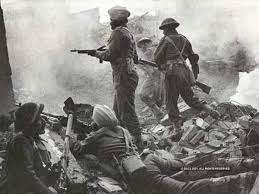(Indian Medical Service began soon after the birth of East India Company in 1600. Surgeons were first appointed in ships carrying men and material to India. By 1614 a Surgeon General was appointed. The Bengal Medical Service was set up in 1763 followed by similar services in Bombay and Madras the next year.
Many renowned doctors of the IMS served in Nilgiris. Noble winner Sir Ronald Ross was member who did work in Nilgiris in 1897 on malaria. John Shortt, besides serving Nilgiris, wrote an important book on the local tribes in 1868. John Wolfran Cornwall, the first Director of Pasteur Institute, Coonoor and some of his successors were from IMS. Some of the doctors of IMS died and buried here. Indian Medical Service continued till 1947.
The following report appeared in June 1912 in the Indian Medical Gazette. The contents of the report are timeless and most appropriate to the current situation. This is published as a tribute to the medical fraternity for its yeomen service in these pandemic times. )
What the Indian Medical Service has done for India ?
“ From time to time the question is asked what has the Indian Medical Service done for India? The present time appears to be appropriate for an attempt to record what the Service has done during the past two centuries, towards the treatment of disease in India. What has been achieved in India by members of the medical profession, employed and paid by Government for the public service, there is nothing new. All of it is, or should be, well known. It has all been said a dozen times before. But in India memories are short.
In order to justify the maintenance of a Medical Service, it is not necessary to show that it has gone beyond the sphere of daily duty. If the members of that Service have, with few and rare exceptions, honestly carried out the duties entrusted to their charge; that seems to us sufficient. That they have done this much, even the detractors of the Service would hardly deny.
In many a desolate frontier outpost, in many a dismal little civil station, they along with their fellow servants, civil and military, have carried on their daily work, in most cases without expectation of any further reward than their fixed and regular pay. They have laid down their lives by scores in “plague, pestilence, and famine, in battle, murder, and in sudden death.” But we hope to show that, in every generation, some members of the service, at least, have done much more than their ordinary duty, and have materially contributed to the advancement of knowledge or to the advantage of the country of their adoption. In so doing, a few have attained to fortune, a somewhat larger number to some degree of fame. Most have gained little for themselves, beyond the consciousness of duty done”.
Image: Unidentified members of IMD in France during World War I
Nilgiri Documentation Centre

